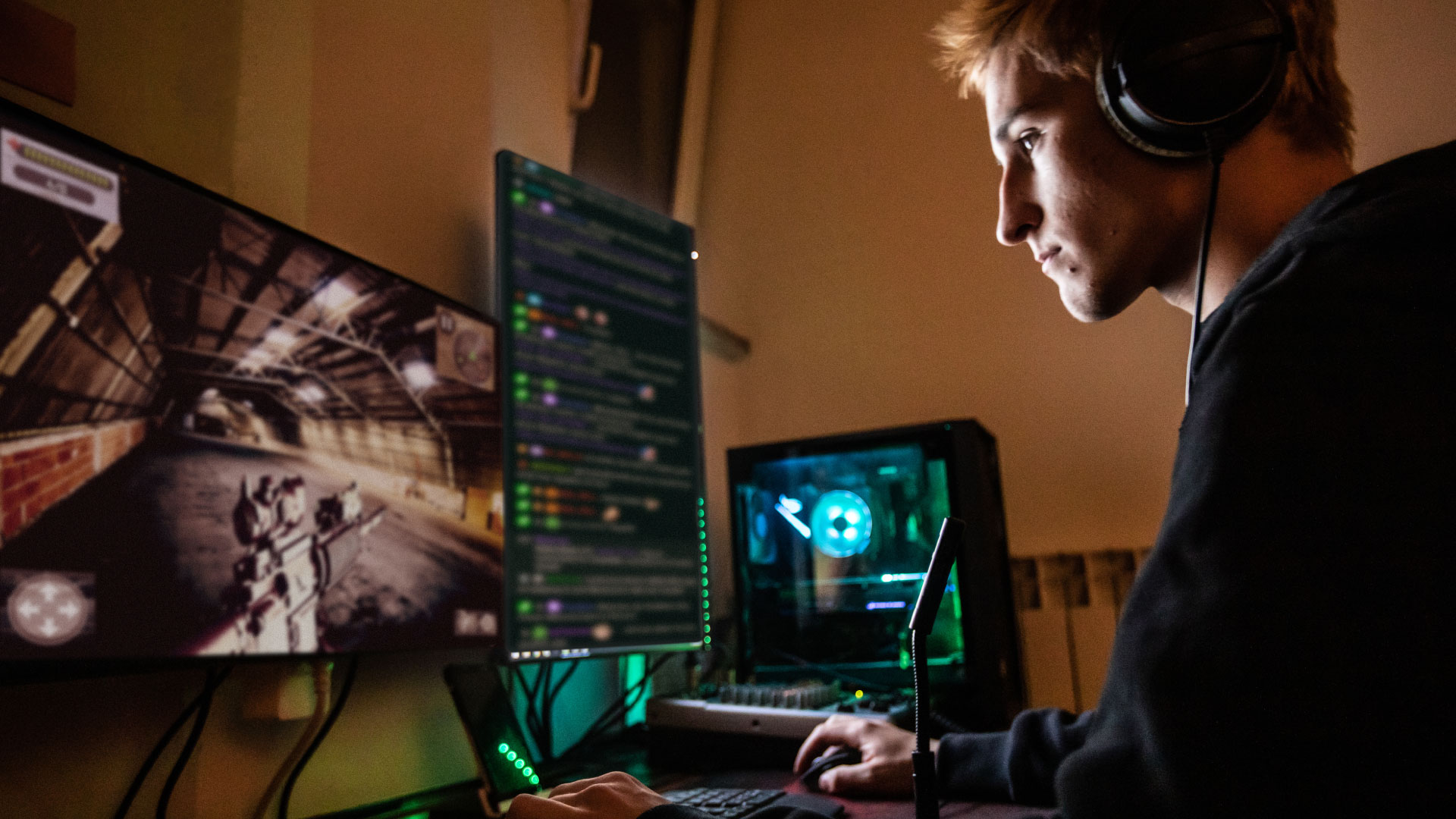
All Fun and Games? Call of Duty Publisher Pays $18m, Overhauls Compliance Following Workplace Misconduct Scandal
As the gaming industry’s problems with toxicity extend from the businesses themselves to the in-game communications of some of their biggest-selling hits, experts believe the problems are addressable only with the right technology.
The video game publisher Activision Blizzard has sacked 20 staff following its US$18 million payoff to settle a federal civil-rights complaint concerning allegations of sexual harassment and discrimination against female employees.
Late last year the Call of Duty developer that it would put more resources into stamping out the racism, hate speech, and sexual harassment that occurs within its popular video games. It has banned almost half a million accounts for racism in the past year, and promised to use better technology to help with enforcement.
The firm is subject of a record $69 billion takeover from Microsoft, with the software giant stating outright the environment within Activision has to change. “The culture of our organization is my No. 1 priority,” said Microsoft CEO Satya Nadella on a conference call discussing the deal. “We are supportive of the goals and the work Activision Blizzard is doing and we also recognize that after the close, we will have significant work to do in order to continue to build a culture where everyone can do their best work.”
The toxicity of the video game industry, both inside companies and endemic in the player-to-player communications of some best-selling games, has prompted much soul-searching inside publishers. Many are now turning to machine learning and data analytics tools in an effort to clean up their workplace and their products before regulators intervene.
In-Game Conduct Issues
A recent study by video game developer Unity found that seven out of 10 players experienced some form of toxic behavior, described as “sexual harassment, hate speech, threats of violence, doxing” and other abusive chat or insulting voice activity.
Nearly half of players said they experience toxic behavior “sometimes” while playing, and around 21% report experiencing it “every time” or “often.”
Around two-thirds of players said they would stop playing a game if someone else was abusive toward them or exhibited toxic behavior. A vast majority, just under 92%, think there should be better solutions to enforce compliance with in-game codes of conduct and rules around toxic behavior.
Unity said toxicity is an addressable problem, however, and one solution is improved automated moderation. Game developers are turning to AI and machine learning tools to help analyze voice chats in an effort to clean up their products and make them safer for participants.
By applying data analytics to communication content, firms can better monitor online behavior, especially spoken conversations over in-game voice chats, to uncover abusive bad actors.
Patterns of Bad Behavior
Earlier this month, Activision said it had put 20 more employees on disciplinary proceedings and restructured two teams: Ethics & Compliance, and Employee Relations, as it sought to stem the fallout from the scandal.
Its problems began in July when California’s Department of Fair Employment and Housing (DFEH) sued Activision Blizzard for fostering a culture of “constant sexual harassment” that included groping, derogatory comments, and other conduct that supervisors allegedly knew of or “encouraged.”
Hundreds of employees walked out in protest of their working conditions, and multiple executives, including Activation President, J. Allen Brack, and Entertainment Chief Legal Officer, Claire Hart, have since left the company.
An internal investigation found misconduct across several parts of the business. Employees were fired if they exhibited “patterns” of bad behavior that couldn’t be addressed with training.
In announcing the remodeled compliance department, and extra hiring across ethics and diversity teams, Activation also said it would increase investigations within its US offices and EMEA and APAC regions.
“We are working on additional materials that document our investigative procedures and outline what members of our team who report misconduct can expect during the investigative process,” said Fran Townsend, Executive Vice-President for Corporate Affairs at Activision Blizzard. “We are also working to ensure communications are transparent and time sensitive for any members of our team involved in investigations.”
Activision said the $18 million would “compensate and make amends to eligible claimants,” with remaining funds going to charities that “advance women in the video game industry or promote awareness around harassment and gender equality issues,” as well as to company diversity and inclusion efforts.
“Frat House Environment”
In a seven-page document filed in United States of the District Court for the Central District of California, the Equal Employment Opportunity Commission accused Activision of discriminating against pregnant employees, paying female employees less than their male counterparts, and retaliating against employees who complained about unfair treatment.
Defendants have also fostered a pervasive “frat boy workplace culture that continues to thrive,” the lawsuit alleged.
Employees were subjected to “sexual harassment that was severe or pervasive to alter the conditions of employment,” said the complaint, which sought a jury trial. “The conduct was unwelcome and adversely affected the employees.” The complaint said “extensive” discussions with Activision to address the agency’s findings and come to an agreement had been unsuccessful.
The complaint followed a nearly three-year investigation, according to prosecutors, which occurred while a California employment agency was also investigating Activision. The state inquiry culminated in a July lawsuit that sparked uproar internally at the game publisher.
The settlement does not affect the California agency’s lawsuit, the company said.
In October, the labor union, The Communications Workers of America, filed a complaint with the National Labor Relations Board, accusing Activision of violating federal labor law. Activision has revealed that the U.S. Securities and Exchange Commission (SEC) was also investigating the company.
The SEC requested documents from the company, including “minutes from Activision board meetings since 2019, personnel files of six former employees and separation agreements the company has reached this year with staffers.” It has also been reported that the agency is seeking any records between Kotick and other executives discussing sexual harassment and discrimination allegations at the company.
The company, responsible for publishing some of the biggest titles in gaming, including the Call of Duty franchise, World of Warcraft, and Overwatch, promised to improve its policies to prevent harassment and discrimination and appoint an external consultant to review Activision’s reporting and investigative procedures.
“There is no place anywhere at our company for discrimination, harassment, or unequal treatment of any kind, and I am grateful to the employees who bravely shared their experiences,” said Bobby Kotick, Chief Executive Officer at Activision, “I am sorry that anyone had to experience inappropriate conduct.”
In a separate legal filing, Activision denied “all allegations of wrongdoing,” and said it had agreed to the settlement to avoid “the expense, distraction, and possible litigation associated with such a dispute.”
Gaming’s #MeToo Moments Keep Coming
The Activision complaint sent shockwaves through the gaming industry, encouraging employees at other gaming developers to denounce the abuse of staff, and share allegations of misconduct, bullying, and discriminatory workplaces.
Almost 500 current and former Ubisoft employees signed an open letter in support of Activision Blizzard staff who spoke out against the actions of their company. Riot Games employees have also made similar allegations regarding misconduct and unsafe working environments.
Assassin’s Creed creator Ubisoft was the poster child for workplace toxicity in the gaming industry in 2020, as reports implicating the highest levels of the French publisher’s leadership were made public. Swathes of Ubisoft executives and game developers have resigned or been fired over reports of harassment and misconduct, and the company is still grappling with the legal fallout and staff exits.
Meanwhile, Riot Games, the studio behind League of Legends, became embroiled in a 2018 Kotaku investigation detailing its culture of sexism and harassment. The company, accused of fostering a sexist culture, is also still dealing with ongoing lawsuits and settlements with state regulators.
Diversity Needs Women in Power
Many of the issues stem from the video game industry still being overwhelmingly white and male; significantly more so than its counterparts in Silicon Valley and Hollywood, industry observers said. Just 24% of game developers are women, and just 2% are Black, according to data collected last year by the International Game Developers Association.
Experts have warned that attitudes need to change inside the firms, not just the people. Kishonna Gray, a gender and women’s studies professor at University of Illinois, Chicago, said recent statements did nothing other than “pacify” people and make them stop talking about the underlying gender problems in the industry.
“They just purge the evildoers and think that they’re OK, not realizing that they’re all complicit and that there’s a culture that devalues women,” Gray said.
Dr. Carly Kocurek, an Associate Professor of Digital Humanities and Media Studies at the Illinois Institute of Technology, added that the spate of sexual harassment resignations could be signs of a broader cultural shift away from the longstanding sexist attitudes within many gaming companies, but it was too early to tell.
“If you don’t actively try to change these things, they don’t change that much. There’s been a few times where there’s some pushback and there seems to be a real conversation happening, and then it just kind of fizzles,” Kocurek said.
Tackling discrimination is a matter of changing cultures within organizations, agreed Rensselaer Polytechnic Institute professor Francine Berman. “Diverse leadership is a critical part of creating diverse cultures,” she said. “Women are more likely to thrive in environments where they have not only stature, but responsibility, resources, influence, opportunity, and power.”





